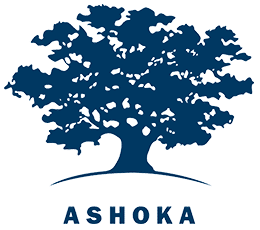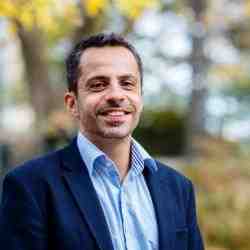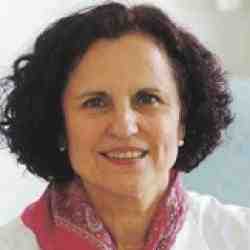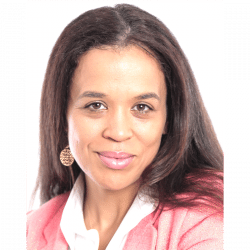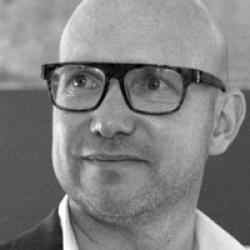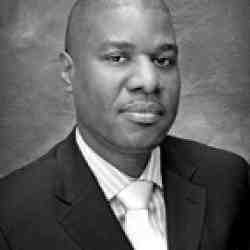Fellows
About the program
Across the world, many individuals and communities lack access to high-quality and affordable healthcare, caused by the remoteness of their community, lack of means to pay for healthcare support, conflict, or other causes. Recognizing the need to increase healthcare access for disadvantaged communities, social entrepreneurs are creating new and visionary solutions to provide suitable healthcare services and, in certain cases, eventually even transform healthcare systems to increase the healthcare available to people and communities.
The Philips Foundation and Ashoka cooperated in a multi-year program from 2016-2021 to accelerate access to healthcare around the world by connecting social entrepreneurship with industry skills and exploring collaborations between the Philips Foundation and Ashoka Fellows. The program was rooted in Philips Foundation's longstanding commitment to increasing healthcare access for disadvantaged communities through innovation. Ashoka's network of leading social entrepreneurs, in turn, advanced health equality with new solutions and approaches.
Together we have nurtured a global community of 44 social entrepreneurs. At a minimum, each entrepreneur participated in one program activity to further establish and grow their innovation’s impact. With several, a deeper collaboration was established, where Fellows partook in multiple or all programs offered by the AHA partnership. In 2020, our partnership enabled the Fellows to provide new or enhanced access to healthcare to more than 36 million individuals and improved the lives of more than 5 million people.
Ashoka Fellows creating a more equitable health ecosystem
Recognizing un(der)served groups and spotting the systemic bottlenecks which prevent them from obtaining care is critical to expanding health access. We elected 14 new Ashoka Fellows, who have spotted these bottlenecks in health and are implementing targeted solutions to address them. Regular community calls have provided a safe space for Fellows to gain peer-to-peer support and learn about each other’s work.
Developing impact scaling strategies to increase the reach of their work
Fellows that successfully piloted their innovations joined the four-month Globalizer program, Ashoka’s flagship accelerator, to scale their impact.
Within our program, we engaged 125 experts in global health across the business, government, and citizen sectors to help Ashoka Fellows establish a solid strategy for growth. More than 150 people visited the Globalizer summits. To this day, participating Fellows are implementing the strategies that were developed during this program.
Establishing meaningful collaborations and connections to advance health access
Throughout our program, we explored how Philips Foundation and Ashoka Fellows, along with their respective networks, can meaningfully collaborate to address health care barriers in disadvantaged communities.

Learnings on successful collaboration models
Over the years, the AHA! program has underscored that systemic impact is best achieved when merging the system-changing solutions of Ashoka Fellows with the business expertise and resources of Philips Foundation, Royal Philips, and their network. However, our partnership has also made clear that just bringing people together is not enough. Multi-stakeholder collaborations produce complexities that require serious (long-term) commitments. Collaborators must come to the table as experts and equals, embrace each other’s differences, and invest adequate time and resources to deepen relationships if they are to forge a powerful impact-focused collaboration. The results of that commitment are win-win partnerships that utilize creative solutions to expand access to healthcare.
Collaborating during Covid-19
In 2020, the Covid-19 pandemic transformed our way of life and provided unique challenges in the healthcare sector. Social entrepreneurs have proven to be first responders to the Covid-19 crisis but have also been seriously challenged in growing or even just continuing their work. They have had to adapt quickly to digitization and other ways of organizing their work. As part of the AHA! program in 2020, Philips Foundation became an essential network activator to find the expertise needed to facilitate this transition.
Fundación Nuestros Hijos (FNH): Continuing care during Covid-19
Fundación Nuestros Hijos of Ashoka Fellow Marcela Zubieta has been a childhood cancer pioneer in Chile for more than 29 years with a mission is to give each child access to treatment, recovery, and reintegration into society.
When Covid-19 hit, FNH struggled to transport their immunocompromised children to their treatment center due to the need for additional safety measures. They also faced roadblocks to access specialized medications for children receiving care at home. Finally, the pandemic forced FNH to cancel their annual fundraising event which was a significant revenue generator for the organization. FNH needed to close their funding gap and add digital services as well as safe transport services.
Thanks to support from volunteer advisors organized by the partnership, FNH received a grant from the Philips Foundation allowing the organization to continue offering safe transportation to patients and set up telehealth rehabilitation for patients who could not make it to the FNH center. In addition, connections with the local Royal Philips team have paved the way for a longer-term collaboration between Royal Philips and FNH aiming to expand the work into other areas in Chile as well as across Latin America.
Download the Interim and Final Reports
About the Philips Foundation
The Philips Foundation aims to be different from the traditional grant-making foundation. Together with its partners, the Philips Foundation seeks to identify global challenges where the innovation capabilities of Philips and expertise of partners, visionaries and innovators, can be combined to create lasting impact. Both Philips Foundation and Ashoka believe in the power of collaboration and its ability to mobilize expertise, innovation and impact.
The Philips Foundation
The Philips Foundation seeks to be different from the traditional grant-making foundation. Together with its partners, the Philips Foundation seeks to identify global challenges where the innovation capabilities of Philips and expertise of partners, visionaries and innovators, can be combined to create lasting impact. Both Philips Foundation and Ashoka believe in the power of collaboration and its ability to mobilize expertise, innovation and impact. In 2016, Philips Foundation and Ashoka collaborated to run a 6 months accelerator program: The Globalizer on Health and Lighting, which helped 12 leading social entrepreneurs scale their innovations.
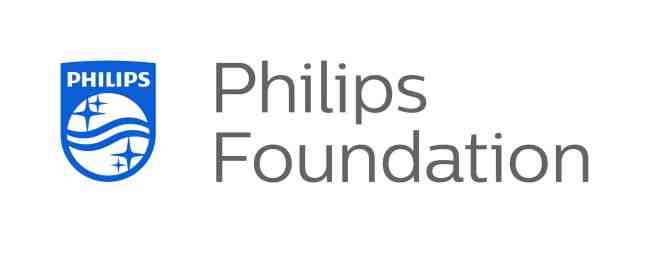

The Philips Foundation
The Philips Foundation seeks to be different from the traditional grant-making foundation. Together with its partners, the Philips Foundation seeks to identify global challenges where the innovation capabilities of Philips and expertise of partners, visionaries and innovators, can be combined to create lasting impact. Both Philips Foundation and Ashoka believe in the power of collaboration and its ability to mobilize expertise, innovation and impact. In 2016, Philips Foundation and Ashoka collaborated to run a 6 months accelerator program: The Globalizer on Health and Lighting, which helped 12 leading social entrepreneurs scale their innovations.
Ashoka
Ashoka is the global network for designers of our society who take an entrepreneurial stance and innovative approaches to solve social problems - in partnership with institutions and committed people worldwide.
